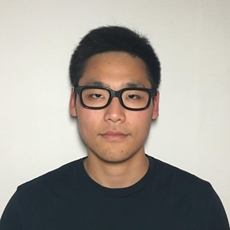检测到您当前使用浏览器版本过于老旧,会导致无法正常浏览网站;请您使用电脑里的其他浏览器如:360、QQ、搜狗浏览器的极速模式浏览,或者使用谷歌、火狐等浏览器。
 下载Firefox
下载Firefox
检测到您当前使用浏览器版本过于老旧,会导致无法正常浏览网站;请您使用电脑里的其他浏览器如:360、QQ、搜狗浏览器的极速模式浏览,或者使用谷歌、火狐等浏览器。
 下载Firefox
下载Firefox
金沙威尼斯欢乐娱人城定量生物学中心
学术报告
题 目: Machine learning cell dynamics
Kadanoff-Rice Postdoctoral Fellow
James Franck Institute and Pritzker School of Molecular Engineering
The University of Chicago
地 点: ZOOM线上报告
Meeting ID: 746 492 6744
Password:654321
主持人: 林杰 研究员
摘 要:
The dynamics of a multicellular tissue is the consequence of collective motions across multiple length and time scales. At the single-cell level, collections of macromolecules self-organize into sub-cellular machines to drive the morphogenesis, migration, and division of the cell. At the tissue level, those cellular behaviors are coordinated by mechanical stresses and chemical signaling between the cells. A fundamental challenge of cell dynamics is to build predictive models that map the high dimensional information about intracellular molecules and intercellular interactions onto low dimensional physical descriptions of biological matter. In this talk, I will present a multiscale machine-learning pipeline for the study of cell dynamics. In particular, I will show how to identify key molecular inputs for cellular dynamics of interest as well as how to forecast multicellular dynamics from geometric information of the cells that is easily accessible in experiment.
Ming Han obtained his B.S. in Physics & Applied Mathematics from Shanghai Jiao Tong University,and Ph.D. in Applied Physics from Northwestern University. In 2018, he joined Prof. Vincenzo Vitelli’ lab at the James Franck Institute at the University of Chicago. His previous works are solving forward problems guided by statistical mechanics. Now he is leaning more towards the use of machine learning (ML) to understand biological.
